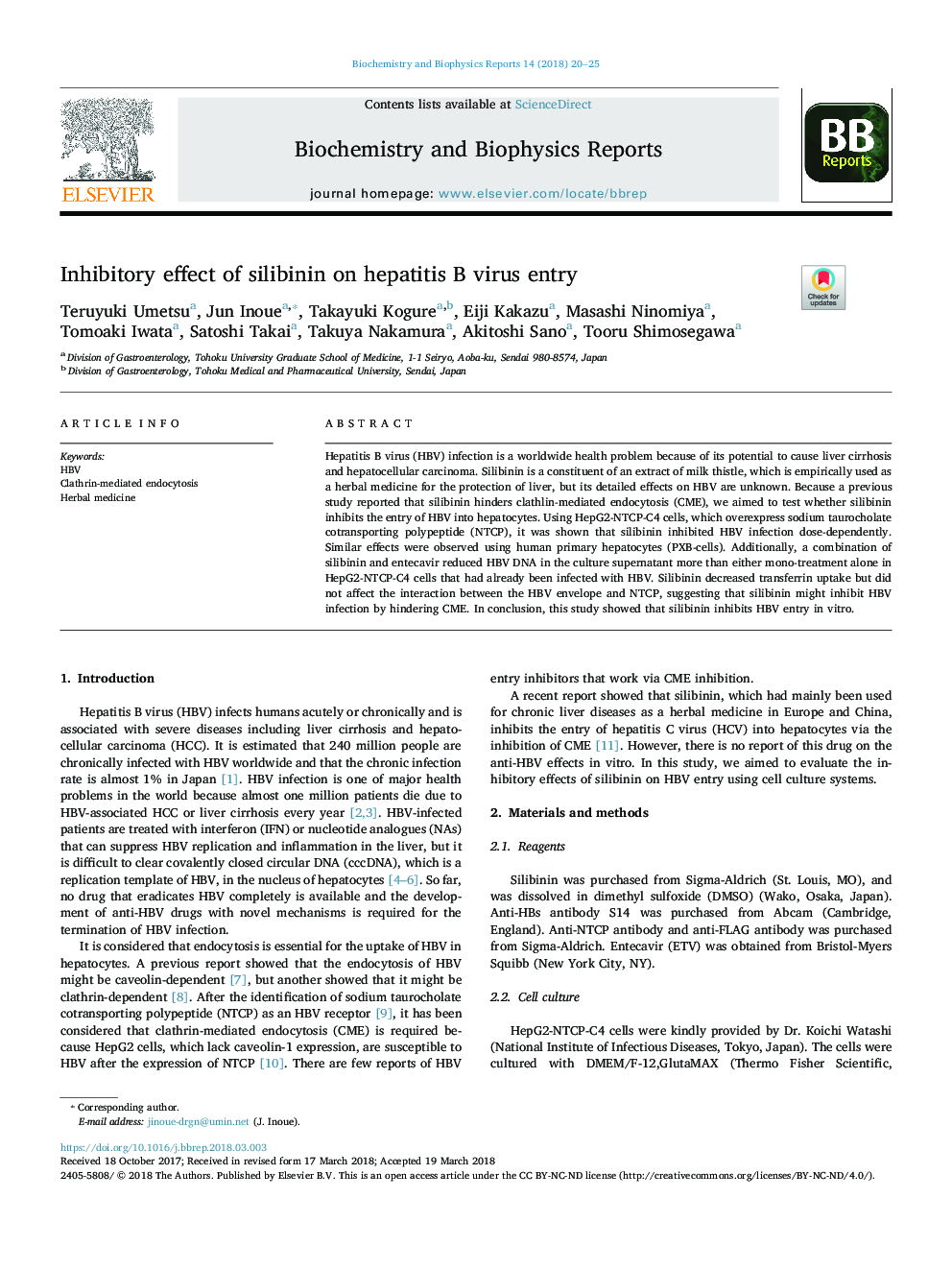| Article ID | Journal | Published Year | Pages | File Type |
|---|---|---|---|---|
| 8298387 | Biochemistry and Biophysics Reports | 2018 | 6 Pages |
Abstract
Hepatitis B virus (HBV) infection is a worldwide health problem because of its potential to cause liver cirrhosis and hepatocellular carcinoma. Silibinin is a constituent of an extract of milk thistle, which is empirically used as a herbal medicine for the protection of liver, but its detailed effects on HBV are unknown. Because a previous study reported that silibinin hinders clathlin-mediated endocytosis (CME), we aimed to test whether silibinin inhibits the entry of HBV into hepatocytes. Using HepG2-NTCP-C4 cells, which overexpress sodium taurocholate cotransporting polypeptide (NTCP), it was shown that silibinin inhibited HBV infection dose-dependently. Similar effects were observed using human primary hepatocytes (PXB-cells). Additionally, a combination of silibinin and entecavir reduced HBV DNA in the culture supernatant more than either mono-treatment alone in HepG2-NTCP-C4 cells that had already been infected with HBV. Silibinin decreased transferrin uptake but did not affect the interaction between the HBV envelope and NTCP, suggesting that silibinin might inhibit HBV infection by hindering CME. In conclusion, this study showed that silibinin inhibits HBV entry in vitro.
Related Topics
Life Sciences
Biochemistry, Genetics and Molecular Biology
Biochemistry
Authors
Teruyuki Umetsu, Jun Inoue, Takayuki Kogure, Eiji Kakazu, Masashi Ninomiya, Tomoaki Iwata, Satoshi Takai, Takuya Nakamura, Akitoshi Sano, Tooru Shimosegawa,
